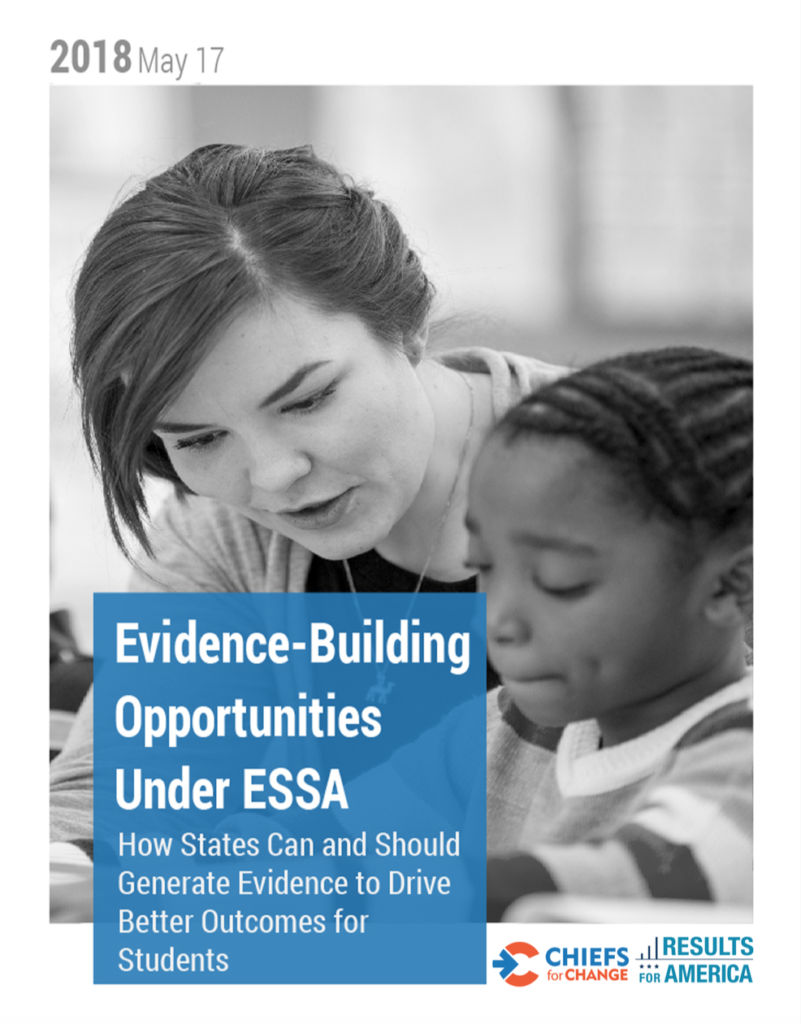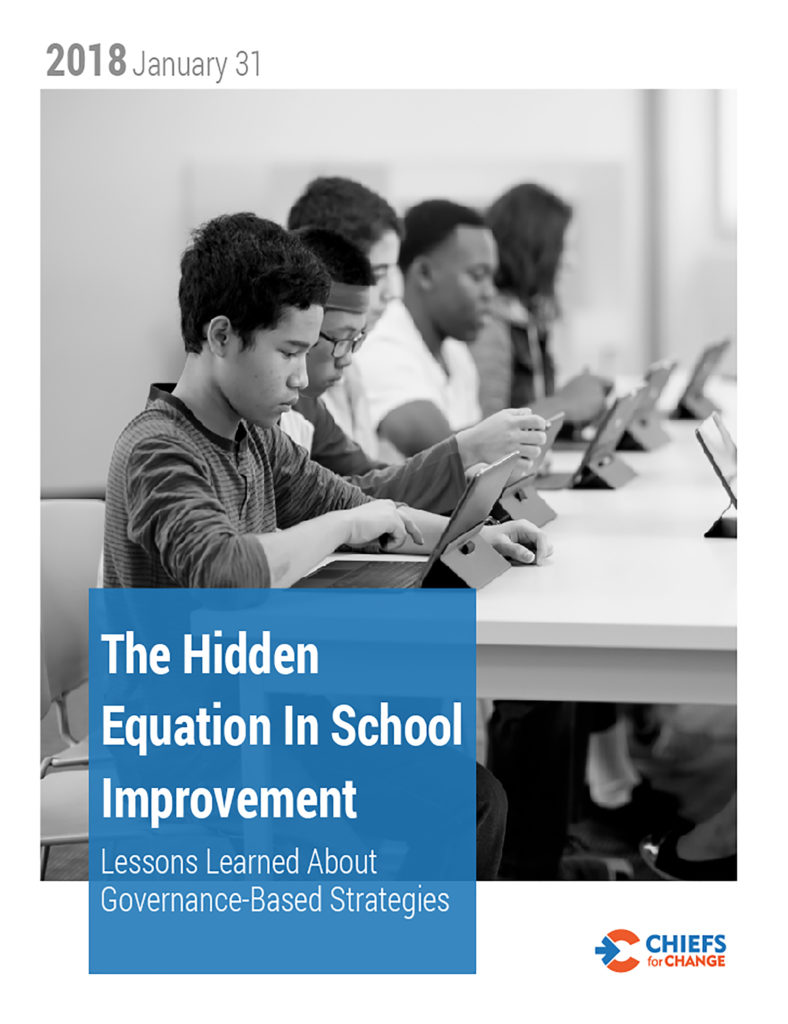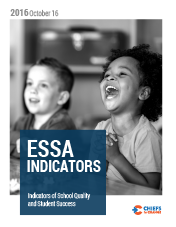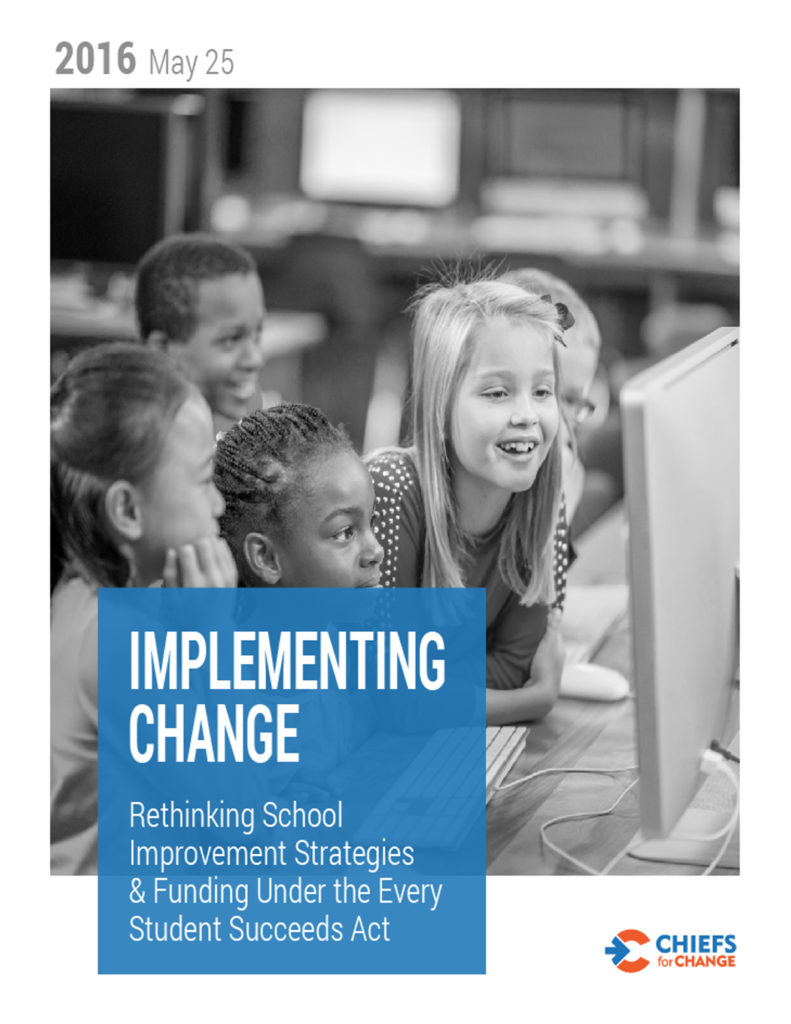POLICY PAPERS
Our policy papers codify the learning from our community of practice and offer recommendations
to Chiefs as they shape the future of education in their states and districts.
to Chiefs as they shape the future of education in their states and districts.

May 14, 2020
THE RETURN
How Should Education Leaders Prepare for Reentry and Beyond?
The COVID-19 crisis has brought school closures to every state in the country; district, charter, and private schools alike have scrambled to provide remote learning in short order. While the current restrictions on student learning will not last forever, the consequences of the crisis on students’ academic progress—let alone on their and their families’ economic and emotional wellbeing—are likely to persist well into the future. How can school systems prepare for what will be anything but business as usual?

March 2, 2020
LEADING CHANGE IN LOUISIANA
How Louisiana Is Empowering Teachers to Implement an Aligned Academic Vision
Research shows that teachers are most effective when they have access to a high-quality curriculum, ongoing professional development that helps them use that curriculum well, and student data from standards-aligned assessments. This coherent academic vision of aligned curriculum, assessments, and professional learning is focused on providing every educator with the tools and resources to meet the needs of all students.

November 1, 2019
Curriculum Implementation Guide
This document is a road map for establishing a strong academic system of standards and instructional materials, professional learning, and assessment.

September 30, 2019
LEADING CHANGE IN TEXAS
How Members of Chiefs for Change are Helping to Build a System of Great Schools
In recent years, Texas has introduced a number of cutting-edge and comprehensive reforms aimed at improving underperforming schools. One important initiative is the Texas Education Agency’s (TEA) System of Great Schools (SGS). This report outlines the SGS approach, which is designed to foster systemic change at the district level by creating more high-quality school options for families. The report also explains how members of Chiefs for Change are participating in the SGS and provides recommendations for other states interested in implementing the model.

May 17, 2018
EVIDENCE-BUILDING OPPORTUNITIES UNDER ESSA
How States Can and Should Generate Evidence to Drive Better Outcomes for Students
"Evidence-Building Opportunities Under ESSA," issued in collaboration with Results for America, highlights ways that state education Chiefs have expanded research efforts to study the impact of programs and initiatives focused on boosting student achievement. The report serves as a guide for states and districts. It outlines evidence provisions in the Every Student Succeeds Act (ESSA) and describes a range of policies, practices, tools, and partnerships states have created to better understand what works to help students learn.

April 3, 2018
LEADERSHIP MATTERS
Investing in Sustained School-Systems Leadership
The call to action is straightforward: At every level, policy makers, stakeholders, and current education leaders can serve students better by investing in and drawing from new and stronger career pathways, superintendent-development programs, and coaching trees within districts and state education agencies. America’s public education system needs a stronger bench of courageous and effective systems leaders. But that won’t happen until we prioritize diverse education system leadership and develop it.

February 12, 2018
THE NETWORK EFFECT
Harnessing the Power of Teacher Leadership Networks to Sustain Progress in Tennessee
Under the sustained leadership of two Chiefs for Change Members, Commissioners Kevin Huffman and Candice McQueen, Tennessee has made truly impressive progress in student achievement over the better part of the past decade which is a testament to the vision for and dedication to their teacher empowerment work. The Tennessee Department of Education made it a priority to incorporate teacher voice into a variety of initiatives aimed at improving schools and the teaching practice. The statewide efforts, which provide support for district-led programs, have empowered teachers to take ownership of policy, curriculum, technology use, and data through a “network of networks.” At a time when the state was working to improve standards and raise expectations across the board, teacher leadership was key to successfully developing, launching, and sustaining reform efforts.

January 31, 2018
THE HIDDEN EQUATION IN SCHOOL IMPROVEMENT
Lessons Learned About Governance Based Strategies
This report is about the principles that underlie that promise, and what bold leaders can do to accelerate that kind of change. The result of such thoughtful, coordinated efforts has been improvements where they matter most — in outcomes for kids. Chiefs for Change members are committed to a core set of beliefs and share a vision that all American children can lead fulfilling, self-determined lives as adults. When it comes to school improvement, they are leveraging governance-based measures in particular to develop strategies in service of this vision.

December 11, 2017
SUSTAINED, BOLD REFORM
Investing in Teacher Leadership in New Mexico
Sustained, Bold Reform: Investing in Teacher Leadership in New Mexico draws lessons from the distinct approach used by New Mexico Education Secretary Hanna Skandera and her successor Christopher Ruszkowski, both Chiefs for Change members, to modernize and elevate the teaching profession, providing an in-depth analysis of the state’s successful model for teacher leadership. With the state agency as a case study, this brief lends an insider view of the structures, systems, metrics, policies, and programs developed in the Land of Enchantment to empower teachers as leaders, advocates, and trusted partners in school and system improvement. Bold leadership, sustained over time – and the coaching trees that help to ensure sustained leadership – matter.

August 8, 2017
HIDING IN PLAIN SIGHT
Leveraging Curriculum to Improve Student Learning
A relatively nascent but powerful body of research suggests that content-rich, standards-aligned, and high-quality curricula exert a powerful influence on student achievement. There is also early evidence that switching to a high-quality curriculum may be a more cost-effective way to raise student achievement than several other school-level interventions. Leading states and districts – from New York to Louisiana to Washington, D.C. – are showing how smart strategies can be used to ensure that high-quality standards are matched with high-quality instructional materials, leading to strong student outcomes – without trampling on local control of education.

October 16, 2016
ESSA INDICATORS
Indicators of School Quality and Student Success
Before considering new indicators, states will want to critically examine the quality and validity of all the existing indicators in their systems, particularly with regard to any performance targets in their annual growth indicators and so as to ensure that these are consistent with their ESSA-required state-wide interim and longterm academic achievement targets. Nevertheless, ESSA clearly also requires at least one indicator of school quality as part of a state’s accountability system, thus providing an important opportunity to focus on new indicators that could contribute to continuous improvement in educational outcomes.

May 25, 2016
IMPLEMENTING CHANGE
Rethinking School Improvement Strategies and Funding Under the Every Student Succeeds Act
The Every Student Succeeds Act (ESSA) requires state education agencies (SEAs) to set aside 7% of their Title I funding in order to turn around struggling schools identified by states under their accountability systems. Nationwide, this translates to over $1 billion annually. Under ESSA, states have far greater flexibility to approach school improvement in fundamentally stronger ways, shifting decision-making from the federal government to SEAs and local education agencies (LEAs). This paper provides guidance for SEAs committed to advancing this newfound local flexibility and innovation, while also incentivizing LEAs to identify and implement evidence-based school improvement strategies and holding them accountable for results.

